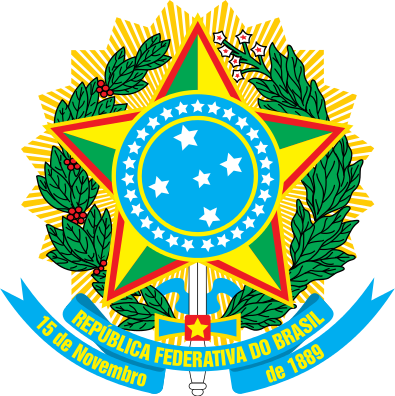Location
Following more than three centuries under Portuguese rule, Brazil gained its independence in 1822, maintaining a monarchical system of government until the abolition of slavery in 1888 and the subsequent proclamation of a republic by the military in 1889. Brazilian coffee exporters politically dominated the country until populist leader Getulio VARGAS rose to power in 1930. By far the largest and most populous country in South America, Brazil underwent more than a half century of populist and military government until 1985, when the military regime peacefully ceded power to civilian rulers. Brazil continues to pursue industrial and agricultural growth and development of its interior. Having successfully weathered a period of global financial difficulty in the late 20th century, Brazil was seen as one of the world’s strongest emerging markets and a contributor to global growth. The awarding of the 2014 FIFA World Cup and 2016 Summer Olympic Games, the first ever to be held in South America, was seen as symbolic of the country’s rise. However, since about 2013, Brazil has been plagued by a shrinking economy, growing unemployment, and rising inflation. Political scandal resulted in the impeachment of President Dilma ROUSSEFF in May 2016, a conviction that was upheld by the Senate in August 2016; her vice president, Michel TEMER, will serve as president until 2018, completing her second term.
Brazil is a federal presidential republic.
Source: CIA World Factbook
Members:
Resources
Displaying 161 - 165 of 180Decree of 29 September 2003 declaring of social interest, for the purposes of the agrarian reform, some rural properties in the States of Bahia and Sergipe.
This Decree, composed of 4 articles, declares of social interest, for the purposes of the Agriculture Reform, the following rural properties: Fazenda Hararas e Fazenda Lagoa do Tião Fazenda Dois Irmãos Fazenda Encanto Fazenda Ilha da Liberdade, Nova Ilha e Barro Vermelho, Fazenda Rancho Alegre, Fazenda Arco Verde, Fazenda Terra Nova, Fazenda Rancho do Bia, Belo Alto e Santa Rita, Fazenda Malhada das Areias and Fazendas Boa Vista e Queimadas.
Decree of 22 December 2003 declaring of social interest, for the purposes of the agrarian reform, some rural properties in the States of Bahia, Maranhão, Minas Gerais, Mato Grosso, Santa Catarina.
This Decree, composed of 4 articles, declares of social interest, for the purposes of the Agriculture Reform, the following rural properties: Fazenda Aliança, Fazenda Conjunto Vitória, Fazenda Alegria, Fazenda Sobrado, Fazenda Boi Manso, Fazenda Nova Esperança, Fazenda Serra Formosa, Fazenda Flor do Prata e Santa Silvia, Fazenda Bom Retiro. The Decree establishes the competence of the National Institute for the Agriculture Reform (INCRA) to promote and supervise the expropriation of the aforementioned rural lands.
Decree of 8 July 2003 declaring of social interest, for the purposes of the agrarian reform, the rural property “Fazenda Buraco” in the State of Minas Gerais.
This Decree, composed of 4 articles, declares of social interest, for the purposes of the Agriculture Reform, the rural property “Fazenda Buraco”. The Decree establishes the competencies of the National Institute for the Agriculture Reform (INCRA) to promote and supervise the expropriation of the aforementioned rural lands.
Implements: Act No. 8.629 regulating rural land property in compliance with the Agrarian Reform. (2017-07-11)
Decree of 29 August 2003 declaring of social interest, for the purposes of the agrarian reform, some rural properties in the States of Bahia, Goias and Pernambuco.
This Decree, composed of 4 articles, declares of social interest, for the purposes of the Agriculture Reform, the following rural properties: Fazenda Curral do Rio Grande II, Fazenda Lameiro e Três Fogos, Fazenda Reunidas F S, Fazenda Lagoa da Onça, Fazenda Nova União, Fazenda Bucaina, Fazenda Dona Olívia, Dona Inês e Carajás I e II, Engenho Bonfim - Divisão Sul. The Decree establishes the competence of the National Institute for the Agriculture Reform (INCRA) to promote and supervise the expropriation of the aforementioned rural lands.
Law No. 716 of 27 December 1983 establishing protection measures for plough lands.
This Law, composed of 8 articles, establishes protection measures for plough lands. It stipulates that any utilization of plough lands for other purposes, such as parcelling or extension of cities, airports, roads etc., will depend on a specific planning and authorization by the Secretary of State for Agriculture and the Secretary of State for Environment. All rural properties under State administration are required to introduce and implement integrated plans for the utilization and conservation of their natural resources.


